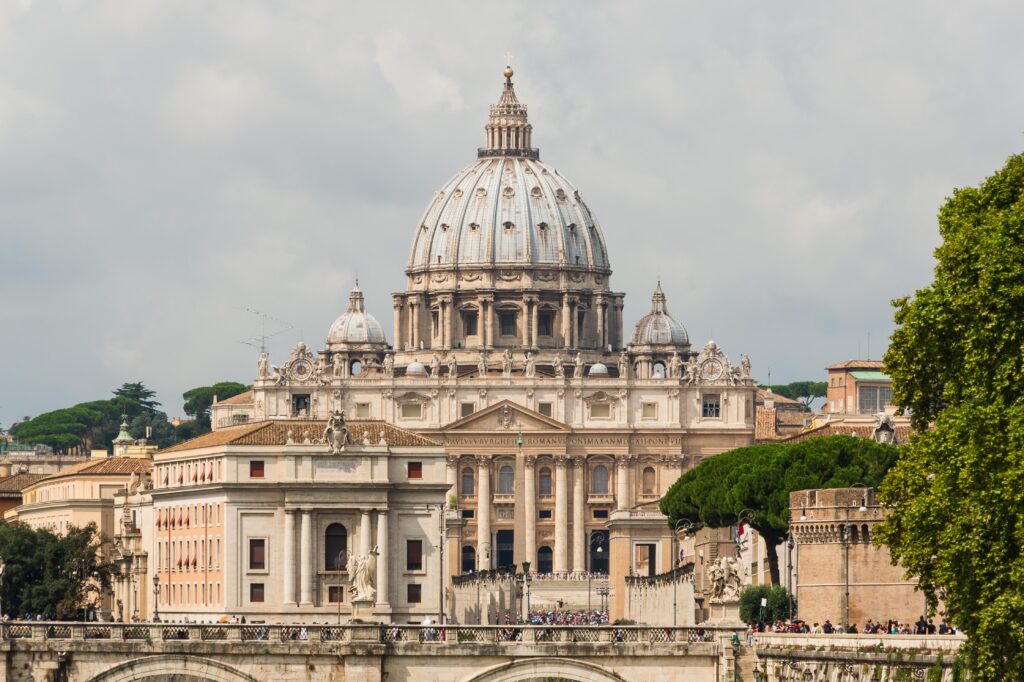In recent years, the misconception that faith and science are inherently at odds has persisted in public discourse, often casting religious believers, particularly Catholics, as skeptical of scientific progress. However, the National Catholic Reporter challenges this narrative, highlighting that the Catholic Church not only embraces scientific inquiry but considers it a vital complement to faith. Far from opposing science, the Church encourages believers to engage with scientific discovery as a means of appreciating the complexity of creation and advancing human well-being. This article explores how the Catholic tradition upholds the harmony between faith and reason, dispelling the myth that good Christians must be anti-science.
The Catholic Church Embraces Scientific Inquiry as Complementary to Faith
Contrary to popular misconceptions, the Catholic Church has long maintained that scientific exploration and religious faith are not mutually exclusive but rather mutually enriching. For centuries, Catholic institutions have been at the forefront of scientific research, fostering a tradition where investigation into the natural world serves to deepen the understanding of divine creation. This harmonious relationship is supported by the Church’s acknowledgment that reason and revelation coexist, allowing believers to embrace discoveries in fields like astronomy, genetics, and environmental science without compromising their commitment to faith.
Key areas where science and faith intersect in the Church’s perspective include:
- Theology engaging with philosophical questions raised by modern physics.
- Bioethics shaped by both scientific advancement and moral considerations.
- Environmental stewardship informed by ecological research.
- Historical research into biblical events enhanced by archaeological findings.
| Scientist | Contribution | Affiliation |
|---|---|---|
| Georges Lemaître | Proposed the Big Bang Theory | Catholic Priest |
| Gregor Mendel | Father of Genetics | Augustinian Monk |
| Athanasius Kircher | Pioneer in Egyptology and Geology | Jesuit Scholar |
This ongoing engagement underlines a fundamental principle within the Church: faith inspires scientific curiosity, while scientific advancements encourage a deeper appreciation of the mysteries of faith. Far from discouraging exploration, Catholic teaching encourages the pursuit of knowledge as a way to glorify God’s creation, debunking the myth that being a good Christian necessitates rejecting science.
Debunking the Myth of Anti-Science Christianity through Historical and Theological Evidence
Contrary to popular belief, Christianity-especially within the Catholic tradition-has historically been a powerful catalyst for scientific advancement rather than an opponent. Figures like Gregor Mendel, the father of genetics, and Georges Lemaître, the priest who first proposed the Big Bang theory, exemplify how faith and science have coexisted productively. The Church’s longstanding commitment to education and intellectual inquiry fostered institutions such as the Gregorian University and the Vatican Observatory, platforms where theological reflection and empirical research intersect. This history undermines the myth that being a devout Christian requires rejection of scientific evidence or methods.
Examining the evidence reveals a nuanced relationship, characterized more by dialogue than opposition:
- Scriptural Interpretation Evolving: The Church promotes reading Scripture in ways that accommodate scientific discoveries without compromising doctrinal truths.
- Patronage of Science: Popes have historically supported scientific endeavors, emphasizing harmony between truth revealed through faith and truth uncovered through reason.
- Ethical Reflection on Science: Catholic teaching engages with scientific progress critically, ensuring innovations adhere to moral and human dignity considerations.
| Historical Figure | Contribution | Faith-Science Interaction |
|---|---|---|
| Gregor Mendel | Genetics Foundations | Augustinian Monk & Scientist |
| Georges Lemaître | Big Bang Theory | Catholic Priest & Physicist |
| Marie Curie | Radioactivity Research | Raised in Catholic Culture |
Encouraging Dialogue Between Scientists and Faith Leaders to Foster Mutual Understanding
Bridging the perceived gap between science and faith requires open channels of communication where both communities can engage without prejudice. Leading figures from both disciplines have increasingly championed regular forums and collaborative projects, fostering an environment where questions about the origins of life, ethics in technological advancements, and the wonder of the cosmos are explored together. This collaboration not only dispels misconceptions but cultivates an atmosphere where faith informs ethical reflection and science enriches spiritual understanding.
Key elements fueling this dialogue include:
- Interdisciplinary conferences that invite scientists and clergy to present research and theological perspectives side by side.
- Educational programs designed to encourage young people to appreciate both spiritual values and scientific inquiry.
- Joint publications and media initiatives highlighting success stories of harmony between scientific discovery and religious belief.
| Initiative | Participants | Goal | |||||||
|---|---|---|---|---|---|---|---|---|---|
| Science & Faith Symposium | Theologians & Researchers | Explore ethical implications of gene editing | |||||||
| Youth Dialogues | High School Students & Priests | Foster mutual respect and scientific curiosity | |||||||
| Faith & Science Podcast |
Bridging the perceived gap between science and faith requires open channels of communication where both communities can engage without prejudice. Leading figures from both disciplines have increasingly championed regular forums and collaborative projects, fostering an environment where questions about the origins of life, ethics in technological advancements, and the wonder of the cosmos are explored together. This collaboration not only dispels misconceptions but cultivates an atmosphere where faith informs ethical reflection and science enriches spiritual understanding. Key elements fueling this dialogue include:
|
